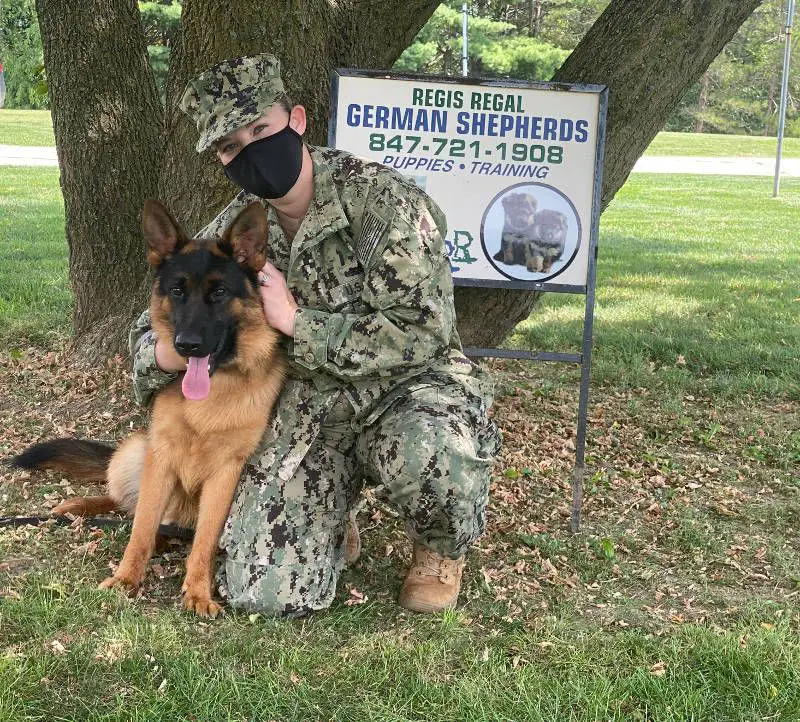Introduction
Psychiatric service dogs are trained to perform tasks that help people with mental illnesses such as PTSD, anxiety, bipolar disorder, and depression. They can help in many ways such as interrupting anxiety or panic attacks, reminding their handler to take medication, or keeping them calm in stressful situations. The dog’s presence alone can have therapeutic benefits by providing comfort, motivation or distraction. Some of the most popular breeds for psychiatric service dogs include Labrador Retrievers, Golden Retrievers, Poodles, German Shepherds, Cavalier King Charles Spaniel, Boxer, Great Dane and Doberman Pinscher. Key qualities that make a good psychiatric service dog include being intelligent, having a calm demeanor, being sociable and friendly, and being able to pick up on cues specific to their handler’s needs.
Labrador Retrievers
One of the most popular breeds for service dogs in general, the Labrador Retriever is known for being friendly, gentle, eager to please, highly trainable and intelligent. According to the article “Service Dog Breed Spotlight: The Labrador and Golden Retriever” on New Life K9s, “Both the Labrador and Golden Retriever have an incredible work ethic and have the behavioral and physical characteristics to make ideal service dogs” (source). Their temperament and trainability make them well-suited for various types of service work.

Labs are commonly chosen for guide work and mobility assistance roles. As described in “Labradors as Service Dogs – Seeing Eye Dogs, Assistance Dogs” on The Labrador Site, “Due to their intelligence, sensitivity and kind natures, the enthusiastic Labrador Retriever breed has been welcomed into so many walks of life” (source). Their mild manner paired with high working drive contributes to their excellence as service dogs for people with disabilities.
Golden Retrievers
Golden Retrievers are also a very popular service dog breed. This is due to their friendly, loyal, and highly trainable nature. According to https://pettable.com/blog/golden-retriever-service-dog, Golden Retrievers are often trained as service dogs to assist individuals with disabilities such as autism, hearing loss, or mobility issues.
As stated by https://www.certapet.com/golden-retriever-service-dog/, this breed is very versatile and can be trained to do anything from calming anxiety attacks and fetching medicine to working as a seeing eye dog and alerting to seizures. Their friendly temperament also makes them excellent at providing comfort and companionship to those in need.
Poodles
Poodles are often used for psychiatric service dogs.[1] They have the intelligence, trainability, non-shedding coat, and hypoallergenic features that make them well-suited for service work.[2] Poodles are very smart and can be easily trained to perform a variety of tasks to assist people with mental disabilities. Additionally, Poodles come in three different sizes – standard, miniature, and toy – which allows people to select the right sized dog for their needs.

The standard Poodle is the most commonly used size for service work. Their larger size allows them to better perform mobility tasks like retrieving items or bracing. Miniature Poodles are also utilized and provide a more compact option for public access work. Finally, toy Poodles can be used for home-based psychiatric service duties. Overall, the intelligence and versatility of Poodles makes them one of the top dogs for psychiatric service work.
[1] https://www.dreamydoodles.com/pros-and-cons-of-poodles-as-service-dogs/
[2] https://www.newlifek9s.org/news-events/blog/service-dog-blog.html/article/2020/12/11/service-dog-breed-spotlight-the-poodle
German Shepherds
German Shepherds are very common breeds used for psychiatric service dogs. According to German Shepherd Service Dog from Certapet, “These service dogs help with mental health issues rather than mobility issues. Someone who suffers from depression, anxiety attacks, PTSD, and other invisible illnesses can benefit from the companionship and support of a German Shepherd service dog.”

German Shepherds are known for being loyal, protective, and hard-working dogs. This makes them well-suited for service roles. As the article The German Shepherd As a Service Dog – Everything You Need To Know from Service Dog Training School states, “Psychiatric Service Dog – Interrupt dangerous, repetitive behaviors of someone with OCD; provide companionship. German Shepherds can make excellent psychiatric service dogs.”
For those suffering from anxiety disorders or PTSD, a German Shepherd can provide a great sense of security and comfort. Their protective instincts combined with their loyal nature allows them to be the perfect companion for those in need of emotional support.
Cavalier King Charles Spaniel
The Cavalier King Charles Spaniel is known for being a gentle, loving companion. Their affectionate and empathetic nature makes them ideal psychiatric service dogs.
The Cavalier King Charles Spaniel provides comfort and support for those suffering from anxiety, depression, and other mental health conditions. Their calm and soothing presence helps alleviate symptoms and melt away stress.
Additionally, their smaller size makes them an unobtrusive service dog option for public spaces. They can comfortably fit in small spaces and don’t draw as much attention as larger breeds.
With proper training and socialization, the loyal Cavalier King Charles Spaniel can be a perfect psychiatric service dog for many people.
Boxer
Boxers can make excellent psychiatric service dogs due to their loyal and affectionate nature (Source). They form strong bonds with their owners and aim to please, making them dedicated companions. Boxers are also athletic and energetic dogs that can easily keep up with active handlers (Source). Their energetic disposition means they enjoy having a job to do and are always ready for their next task. Boxers are highly trainable and intelligent, allowing them to learn the complex skills required of a psychiatric service dog. Their loyal and people-oriented temperament makes them ideal for providing constant care and comfort to those with psychiatric disabilities.
Great Dane
The Great Dane is an ideal breed for psychiatric service dogs due to their large and imposing size, which provides a sense of security, along with their gentle temperament and lower energy levels.

Although Great Danes may look intimidating, they are known as “gentle giants” and are loving companions that are very attentive to their owners. Their lower energy levels and calm demeanor makes them well-suited for providing psychiatric assistance.
Great Danes tend to be very sensitive and in-tune with their owner’s emotions. They can often sense when their handler is feeling anxious or having a panic attack, and respond with soothing behaviors like nuzzling or placing a paw on their lap. Their close bond helps ground their handler in the present moment.
Additionally, their large size at over 100 pounds for males allows them to apply deep pressure therapy which can have a calming effect for many mental health conditions like PTSD or anxiety. Despite their imposing presence, Great Danes are sweet-tempered and want nothing more than to please their owner.
According to https://www.certapet.com/great-dane-service-dog/, Great Danes can fulfill many psychiatric service dog roles including “Psychiatric service dog: This special service dog assists people with mental illnesses. They have all the same rights as all the above …”
Overall, with proper training and socialization, Great Danes have an ideal combination of size, temperament and sensitivity to serve as excellent psychiatric service dogs.
Doberman Pinscher
Often perceived as intimidating, Doberman Pinschers can be great psychiatric service dogs. Their large size and alert appearance serves well for deterring threats against their handlers. However, this loyal and dedicated breed aims only to serve and protect their person. With proper training and socialization, Dobermans can become gentle guardians for those with psychiatric disabilities.
Extremely loyal and dedicated to their handler, Dobermans form a strong bond that makes them highly attentive to their person’s needs. They are quick to pick up on signs of anxiety, fear, or panic, and can respond with appropriate interventions. Whether providing calming pressure therapy or guiding their handler to a safe place during an episode, Dobermans remain focused on their handler’s wellbeing.
Doberman Pinschers are also highly trainable and intelligent. They have a strong work ethic and aim to please, which allows them to learn complex tasks. Their energetic nature keeps them engaged during long training sessions. With patience and positive reinforcement training, Dobermans can excel at various psychiatric service dog roles. According to the Doberman Pinscher Club of America, this breed possesses the traits needed in a successful service dog.
While their protective instincts make them excellent for deterring threats, thorough socialization is required from an early age to ensure good manners around strangers. With the right upbringing and training, Doberman Pinschers have the potential to become dedicated and capable psychiatric service dogs.
Conclusion
In summary, the breeds that tend to make the best psychiatric service dogs are Labrador Retrievers, Golden Retrievers, Poodles, German Shepherds, Cavalier King Charles Spaniels, Boxers, Great Danes, and Doberman Pinschers. These breeds often have calm, friendly temperaments and are highly trainable. When looking for a psychiatric service dog, it’s important to find a dog with a stable personality that is attentive to their handler’s needs.
Some key traits to look for in a successful psychiatric service dog include having a calm demeanor, being people-focused, enjoying physical affection, responding well to training, and being respectful of the public and other service dog users. The dog’s temperament and ability to bond with their handler is most important.
While certain breeds may be ideal candidates, proper training is crucial for any dog performing psychiatric service tasks. Professional training helps ensure the dog can properly aid their handler in public settings and provide the needed support. With the right breed match and training, a psychiatric service dog can greatly improve their handler’s daily life.
